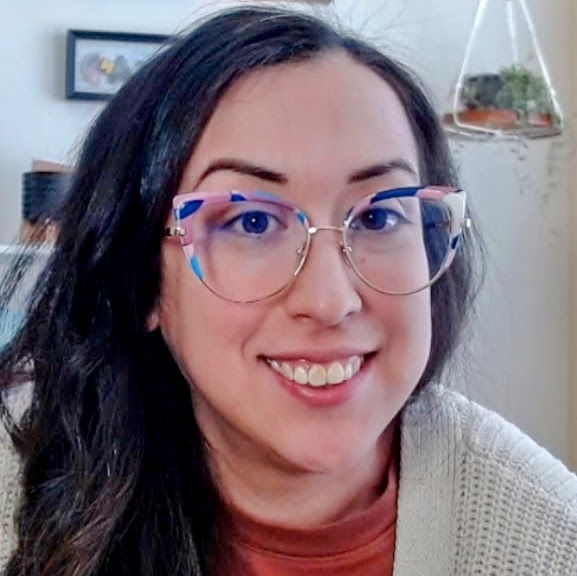Beyond Weekly Therapy: What Happens in a Couples Intensive
TL;DR: The short version (Because I know you’re busy)
You’ve tried weekly therapy. Online couples therapy or in-person. You show up, open up, maybe even have a breakthrough—and then the session ends. Life happens. The momentum fades. And next week, you’re back at square one. If this has been you, you’ll want to keep reading to understand what happens in couples intensive therapy.
- Designed for emotional safety
- Weekly therapy can feel slow or stuck.
- Couples intensives offer focused time for real breakthroughs.
- You’ll get joint sessions, individual deep dives, a treatment plan, and tools you can actually use.
You’ve decided to invest in your relationship. You’re ready to move beyond surface-level fixes and into something deeper—something that actually shifts the way you relate, communicate, and connect. Whether you’re navigating persistent tension, feeling stuck in weekly therapy, or simply craving a more intentional reset, a therapy intensive offers a powerful path forward.
But let’s be honest: the word “intensive” can sound… well, intense. You might be wondering:
- Will it be overwhelming?
- What actually happens during an intensive?
- Can we really make progress in just one or two days?
Let’s walk through what your first couples therapy intensive with me looks like—from the initial consult to the final breakthrough.
Spoiler: it’s structured, supportive, and designed to leave you feeling more connected, more understood, and more equipped to move forward.
Before We Meet: Setting the Stage for Change
Every intensive begins with a thoughtful intake process. Depending on your needs, we’ll start with either a consult call or a 60-minute session. This is your chance to share what’s bringing you in, ask questions, and get a feel for how we’ll work together.
Once we’ve decided to move forward, you’ll receive documentation and assessments designed to give me a full understanding of your relationship dynamics, strengths, and challenges. These aren’t just mundane forms they’re a window into your world. They help me tailor the intensive to your unique needs, so we’re not just talking in circles. They sets us up to make real progress.
Phase One: Getting Aligned
We begin the couples therapy intensive with a joint session. This is where we:
- Clarify your goals
- Identify the topics that would make the biggest impact
- Begin exploring your relationship story
This phase is all about alignment. We’re not rushing into problem-solving—we’re laying the groundwork for meaningful change. You’ll start to see how your patterns have developed, where communication breaks down, and what’s possible when you both feel heard.

This isn’t just about “fixing” things—it’s about understanding each other in ways you may never have before.
Phase Two: Individual Sessions (Yes, You Get Your Own Time)
After our joint session, I meet with each partner individually for 90 minutes. These sessions are sacred. They’re your space to share your personal history, relational patterns, and emotional experiences—without filtering or performing.
This is where I get to know you—your story, your strengths, your wounds, your hopes. It’s also where we begin to understand how your individual experiences shape the way you show up in the relationship.
While one partner is in session, the other gets a break. And yes, this break is intentional.
You can use this time to:
- Journal or reflect on your goals for therapy
- Take a walk, nap, or do something nourishing
- Regulate your nervous system (because yes, therapy can stir things up)
This isn’t just downtime—it’s part of the process. It allows each partner to stay emotionally regulated and grounded, so when we reconvene, you’re ready to engage with clarity.
Phase Three: The Meal Break (Therapy-Free Zone… Unless You Can’t Help Yourself)
After the individual sessions, you’ll take a meal break together. This is your chance to reconnect—not as clients, but as partners.
You don’t have to talk about therapy (though if you just can’t get enough of it, I won’t stop you). You can grab lunch, take a walk, or simply sit together in silence. The point is to pause, breathe, and let your nervous systems settle before we dive back in.
This break often becomes a turning point. Couples report feeling more connected, more curious, and more open after sharing this time together. It’s a reminder that healing doesn’t only happen in session—it happens in the moments in between.
Phase Four: Treatment Planning & Deep Dive
After the break, we reconvene for the final phase of the couples therapy intensive. This is where things get real.
First, I present a treatment plan tailored to your goals and relational needs. This isn’t a generic roadmap—it’s a strategic, emotionally attuned plan that reflects everything we’ve uncovered so far. Then, we dive into the most pressing topics.

This might include:
- Navigating trauma or betrayal
- Communication breakdowns
- Emotional safety and trust
- Neurodivergence in the relationship
- Intimacy and connection
- Creating new relational agreements
We don’t just talk—we work. You’ll learn tools that help you move through challenges in real time. You’ll practice new ways of listening, expressing, and responding. And you’ll leave with strategies you can actually use—in the messy, beautiful reality of your relationship.
What Makes My Couples Therapy Intensives Different?
As a trauma-informed, neurodivergent-affirming therapist, I don’t believe in one-size-fits-all solutions. My couples therapy intensives are designed to meet you where you are—with warmth and a little humor to keep things human.
Here’s what sets my approach apart:
- Relational depth: We don’t just skim the surface. We explore the emotional undercurrents that shape your patterns.
- Individualized care: Your intensive is tailored to your goals, your story, and your nervous system.
- Integrated tools: You’ll learn practical strategies rooted in attachment theory, nervous system regulation, and relational neuroscience.
- Emotional safety: You’ll feel supported, not judged. Challenged, but never overwhelmed.
- Creative pacing: Whether you need a half-day reset or a multi-day overhaul, we’ll structure the experience to support your growth.
Which Couples Therapy Intensive Is Right for You?
Here’s a breakdown of the options I offer, so you can choose what fits your needs and schedule:
Half-Day Intensive: Therapy Accelerated
A powerful jumpstart for couples ready to dive into therapy or for existing clients to address persistent challenges with focused attention.
Ideal for:
- New clients seeking momentum before starting weekly/biweekly sessions
- Existing clients needing a deep dive into stuck patterns
- Busy professionals who want monthly targeted support
1-Day Intensive: Therapy Essentials
This full-day experience offers a relationship “boot camp” for couples who thrive with direct guidance and are ready to implement change.
Ideal for:
- Couples seeking transformation without ongoing weekly sessions
- Partners who want to walk away with tools they can use immediately
- Multi-partner relationships (3+ partners) beginning the therapeutic journey
- Those considering biweekly or monthly follow-up support
2-Day Intensive: Intentional Relational Repair
For couples in crisis or navigating complex relational structures, this immersive experience offers space for strategic repair.
Ideal for:
- Couples contemplating separation or divorce
- Relationships impacted by trauma, infidelity, betrayal, or unresolved conflict
- Families or polycules with 3+ relational structures navigating relational agreements
- Clients who prefer deep dive sessions periodically or need a comprehensive overhaul
Common Questions (And Reassuring Answers)
“Will it be overwhelming?”
It’s normal to feel nervous. But intensives are structured to support—not flood—you. We move at a pace that honors your nervous system, your emotional capacity, and your relational goals. Breaks, others than the ones that are highlighted here, are encouraged and integrated as a pivotal part of the process.
“Can we really make progress in one or two days?”
Absolutely. Extended focused time allows for breakthroughs that might take months in weekly therapy. You’re not just talking—you’re transforming.
“What if we don’t solve everything?”
That’s okay. The truth is it may not solve everything. Intensives aren’t about perfection—they’re about momentum. You’ll leave with clarity, tools, and a plan for continued growth.
“Does this actually work?”
Time and time again, couples leave saying, “This was just what we needed” or “I feel better”. They feel more allied, understood, and equipped to move forward.
TL;DR: Short version take aways
If weekly therapy feels slow or stuck, couples therapy intensives offer a powerful alternative: uninterrupted time, emotional depth, and real momentum. This post breaks down what to expect in your first intensive—from consult to breakthrough—including joint sessions, individual deep dives, emotional regulation breaks, and a tailored treatment plan. Designed for real momentum and lasting change.
Ready to Begin?
Your first couples therapy intensive isn’t just a session—it’s a strategic and designed to help you reconnect, realign, and move forward together.
Whether you’re navigating a crisis, or simply ready to deepen your connection, an intensive offers the time and space to make real change possible.

Alanna Esquejo, LMFT is a Licensed Marriage and Family Therapist based in Pleasanton, CA, offering in‑person sessions locally and telehealth across California. She trained Gottman Method Couples Therapy, level 2 and ADHD Certified Clinical Service Provider. She specializes in trauma‑informed, neurodivergent‑affirming care for couples and professionals, blending warmth, humor, and direct guidance to help clients move from survival mode to intentional living.
September 27, 2025
Leave a Reply
Schedule a Consultation
74 Neal St #202 Pleasanton, CA 94566
esquejo.am@gmail.com
Privacy Policy
Terms and Conditions
Disclaimers
Good Faith Estimate
Be the first to comment